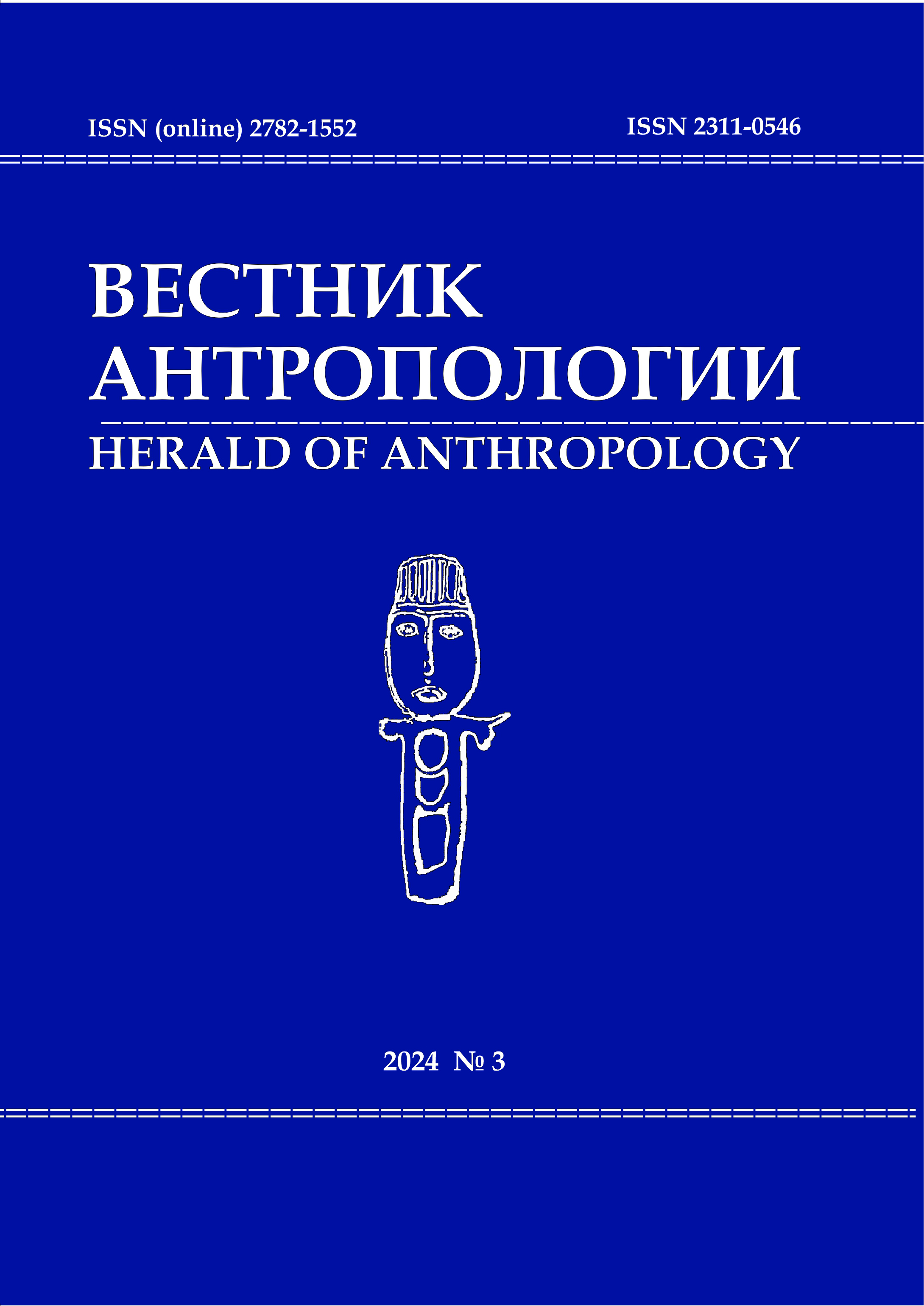Native Language and Cultural Identity of Moldavans in Belarus
DOI: 10.33876/2311-0546/2024-3/301-319
Keywords:
Moldovans of Belarus, diaspora, native language, ethnic self-identification, identity, assimilationAbstract
In this article, based on the author’s field materials collected in 2020–2023, one of the ethnic groups living in Belarus — the Moldovans — is studied for the first time in ethnological science. The role of the native/ethnic language among the members of the diaspora is considered as a means of communication, a mechanism for transmitting national culture in the host country and as a marker of ethno-cultural identity. The author identified the factors that contribute to the preservation or loss of the mother tongue by the members of the diaspora. The research was conducted at the interface of ethnology, ethnosociology and cultural anthropology. Based on data from an ethnosociological survey, it is shown that among Moldovans who settled in Belarus during the Soviet period, the Moldovan language is associated with the heritage of their ancestors, while for some Moldovans of the post-Soviet period it is the “language of the motherland”, “the language of culture”. For Russian-speaking Moldovans, the ethnic language is an emotionally charged collective value that gives a sense of belonging to their ethno-cultural community. It is concluded that the diminishing role of their mother tongue in ethnic self-identification and its loss by the second generation indicate a process of natural assimilation that is rapidly taking place among Moldovans in Belarus.





















